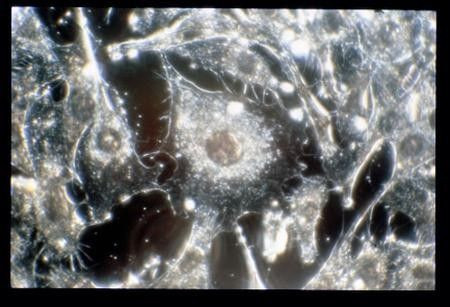Earliest Case of Malignant Cancer Seen In Siberian Skeleton

Scientists were able to discover an ancient case of malignant cancer in a skeleton that dates back 4,500 years. A bioarchaeologist at the University of Saskatchewan in Canada, Dr Angela Lieverse and a fellow researcher, told CBC News they are certain that this represents one of the earliest human cases of metastatic carcinoma uncovered worldwide. This is also the oldest documented case in Northeast Asia.
Skeletal remains of an adult male were dug up in a small graveyard in the Cis-Baikal Region of Siberia. Scientists believe that the man, who likely suffered from prostate or lung cancer that spread throughout his body, was 35-45 years old at the time of death. Dr. Daniel Temple, a biological anthropologist at the George Mason University and a fellow researcher, stated that the individual was in constant pain [and] likely expectorating blood. Lieverse speculates smoke inhalation or other natural carcinogens may have caused this ancient cancer.
Prior to this discovery, the oldest case of human cancer was seen in a 3,200-year-old male skeleton, unearthed in an archaeological site in Northern Sudan earlier this year, 2014. Analysis of the remains revealed evidence of carcinoma that spread to other parts of the body. However, the British researchers were not able to determine the exact cause of the cancer. There were probable explanations theorised. One is the constant exposure of the villagers to smoke in their poorly ventilated houses, and the other is an infection that plagued the area during the 1500 BC.
The latest discovery in Siberia and other evidences of cancer incidence among ancient people challenges the perception that this dreaded illness did not occur in olden times. Scientists are not be able to identify the underlying causes for these cases at this time, but they have more proof that cancer threatened ancient civilisations as well. Further paleopathological investigations can shed light on the evolution of cancers and associated factors such as changes in human populations, heredity and the environment.





















